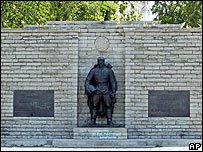
Since the conflicts of the 1970's the region has receded from the front pages of the US weeklies, dailies and the television networks which says more about how elites rule our society than anything about Central America where as one Latin American once said "if the USA sneezes, we get a cold." Dependency still reigns in this region and actually since the recent free trade agreement and the porous US border dependency is on the rise with cheap products now flooding the local common market and remittances becoming a major component of consumer spending.
The four major concerns beyond the above mentioned are continued reliance on primary products such as coffee, bananas, cattle, sugar and cotton which continue to decline in price internationally as well as low end industries, such as textiles and assembly, which are now dominated by the Chinese; increased violence in the cities as death squads and leftists disarm after a couple of decades of violence particularly in Guatemala, El Salvador and Nicaragua; the weather-there have been a number of major hurricanes that have caused tens of thousands of deaths and untold economic damage particularly on the Atlantic coast; and the rising price of gas and oil which has caused major inflation in all of the 5 Central American countries.
Politically the revolutionary left has for the most part thrown in the towel for a radical/reformist/management of capitalism program. The strongest left parties are in Nicaragua and El Salvador where the FSLN and FMLN have maintained a commitment to quasi-Marxist plan but have both come under control of a highly centralized structure and a classic Latin American caudillo, Daniel Ortega and Shafrik Handel respectively.
All 5 countries truly have much in common economically but historically have taken on different narratives from a national perspective and thus find it hard to cooperate. The Costa Ricans in particular like to think of themselves as a veritable Switzerland in a sea of Balkan like/Amerindian savages given that they abolished their army, have a national health system and have a population that looks to its Northern European heritage as much, if not more so than its Hispanic or American identity.

No comments:
Post a Comment